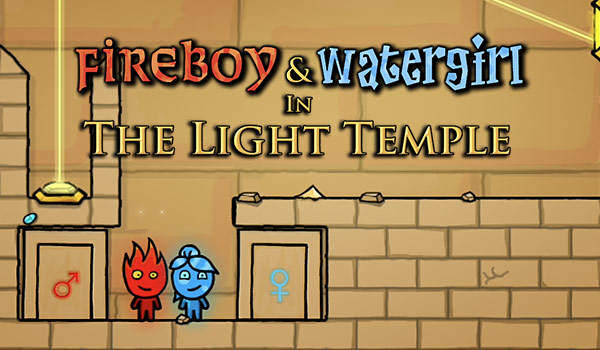Call of Duty is one of the most iconic and enduring franchises in the history of video games. Since its debut in 2003, it has redefined first-person shooters and shaped the multiplayer experience for millions of players worldwide. This article offers an expert overview of Call of Duty’s journey—from its origins and major milestones to its innovations, cultural impact, and critical evaluation. Through 10 carefully structured sections, we’ll examine the series’ development, gameplay evolution, community influence, and the strengths and weaknesses that define its legacy.
The Origins of Call of Duty: Setting a New Standard in WWII Shooters
Call of Duty was developed by Infinity Ward and published by Activision in 2003, entering a market crowded with World War II shooters. Unlike many predecessors, Call of Duty focused on cinematic storytelling, squad-based tactics, and realistic combat mechanics. It allowed players to experience battles from multiple perspectives—American, British, and Soviet soldiers—enhancing immersion.
The game’s success came from its intense, narrative-driven single-player campaign coupled with a robust multiplayer mode. It set a new standard for authenticity and pacing, utilizing innovative AI to make enemy soldiers react dynamically, a significant leap from scripted opponents of that era.
Expanding the Franchise: Modern Warfare and New Settings
In 2007, Call of Duty 4: Modern Warfare revolutionized the franchise by moving away from historical warfare to contemporary combat scenarios. This shift broadened the appeal significantly, introducing players to modern weapons, technology, and geopolitical storylines.
Modern Warfare also introduced a deeply engaging multiplayer experience with perks, killstreaks, and weapon customization, elements that became staples for the series. The success of this title solidified Call of Duty’s position as a dominant force in gaming and set the template for future installments.
The Rise of Multiplayer: Competitive and Social Gameplay
One of Call of Duty’s greatest achievements is its multiplayer mode, which has consistently evolved to engage millions globally. With fast-paced action, map design focusing on balanced gameplay, and a rewarding progression system, the multiplayer aspect is the heart of the franchise.
Features such as clan wars, ranked matches, and seasonal events have fostered a competitive and social environment. Esports leagues dedicated to Call of Duty have also helped professionalize the community, making the series a mainstay in competitive gaming.
Key Multiplayer Innovations
-
Killstreak rewards enhancing tactical gameplay
-
Weapon and loadout customization for personal playstyles
-
Varied game modes like Team Deathmatch, Domination, and Search & Destroy
Call of Duty’s Campaigns: Cinematic Storytelling and Emotional Depth
Throughout its lifespan, Call of Duty has been known for its blockbuster single-player campaigns. Titles like Black Ops and Modern Warfare brought cinematic quality storytelling, memorable characters, and emotional narratives that rivaled Hollywood productions.
The use of cutscenes, voice acting, and scripted set pieces creates an intense atmosphere. Campaigns often explore complex themes such as loyalty, sacrifice, and the moral ambiguities of war, providing a compelling experience beyond pure action.
Expanding Universes: Black Ops and Cold War Eras
The Black Ops series introduced a Cold War setting and narrative complexity with psychological thriller elements. It offered a blend of covert operations and global conspiracies, appealing to fans interested in espionage and political intrigue.
This sub-series also brought fan-favorite multiplayer maps and introduced Zombies mode, a cooperative survival experience that quickly became a beloved staple in Call of Duty.
Zombies Mode: Cooperative Survival Fun
Zombies mode debuted in Call of Duty: World at War and has since become a hallmark of the franchise. It offers players a cooperative challenge against waves of undead enemies with unique mechanics like Easter eggs, crafting, and character progression.
The mode’s appeal lies in its blend of horror, teamwork, and complex strategies. It adds significant replay value and expands Call of Duty’s audience beyond traditional shooters.
Technological Advances: Graphics, Physics, and AI
Call of Duty has consistently pushed the boundaries of technology on each new platform generation. Improved graphics engines deliver realistic environments and character models. Enhanced physics systems add to immersion with destructible objects and realistic ballistics.
AI enemies have grown smarter, offering more dynamic combat experiences. On consoles and PCs alike, Call of Duty leverages advanced hardware capabilities to deliver fast, fluid gameplay with minimal latency, critical for competitive fairness.
The Shift to Battle Royale: Warzone and the Free-to-Play Model
In 2020, Call of Duty entered the battle royale genre with Warzone, a free-to-play standalone game. Warzone blends traditional Call of Duty gunplay with large-scale survival mechanics on a massive map, attracting millions of new players.
The introduction of Warzone has changed the franchise’s ecosystem, integrating progression systems across multiple Call of Duty titles and driving engagement with continuous content updates, live events, and seasonal storylines.
Community and Cultural Impact
Call of Duty has a vast, dedicated community ranging from casual players to professional esports athletes. The franchise influences popular culture, inspiring memes, merchandise, and collaborations with celebrities.
However, it also faces criticism for toxicity in online play and the sometimes aggressive monetization strategies like microtransactions and loot boxes. Despite this, the franchise’s community remains one of the most passionate and active in gaming.
Conclusion:
From its roots as a WWII shooter to a sprawling multimedia phenomenon, Call of Duty has continually adapted and expanded to meet player expectations and industry trends. Its blend of cinematic storytelling, competitive multiplayer, and innovation ensures it remains relevant in a fast-evolving gaming landscape. Whether you’re a fan of tactical combat, gripping narratives, or intense multiplayer battles, Call of Duty offers a comprehensive experience that has earned its place as one of gaming’s most enduring legends.




























